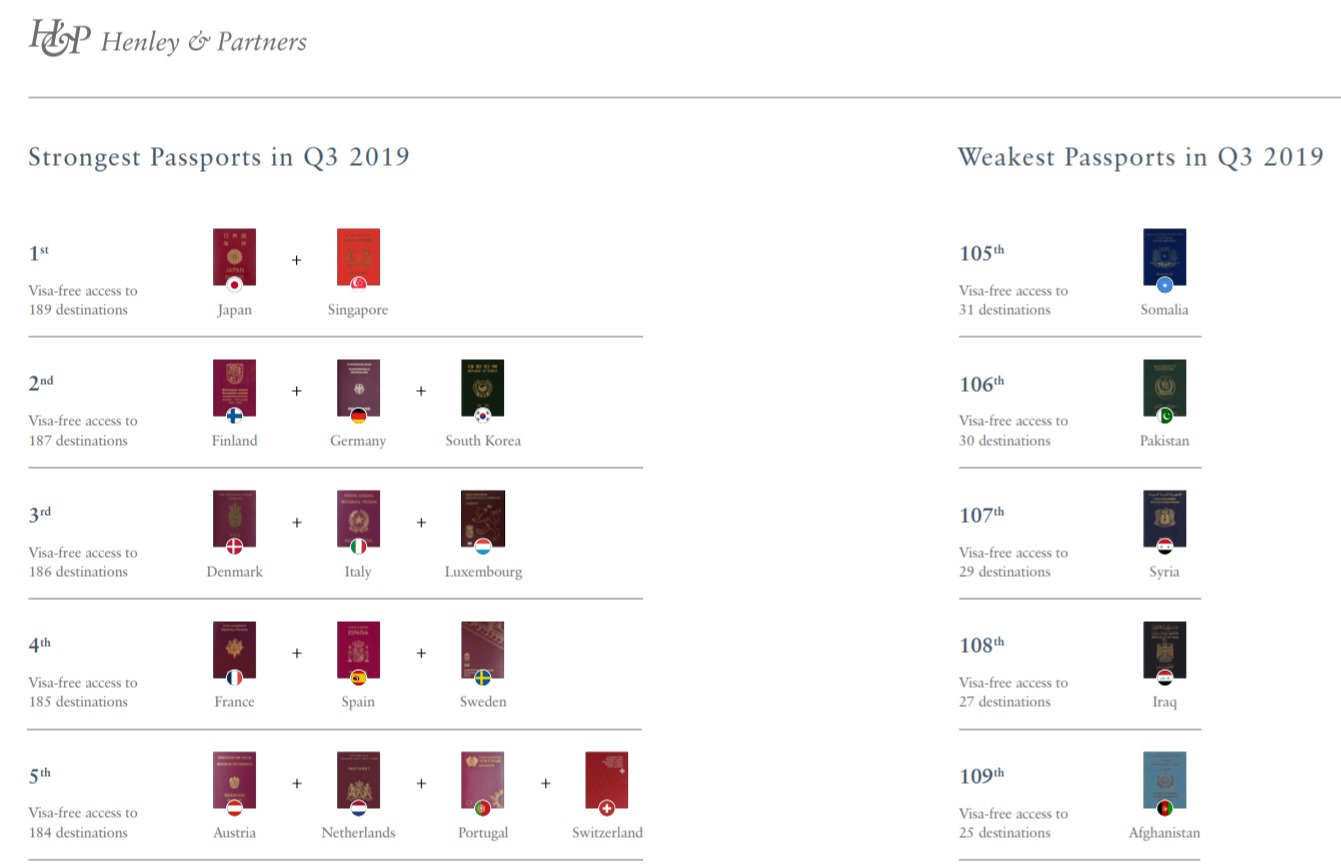The next statistical issue of the Henley and Partners Quarterly Report was published (cheers to Moldovan investment program for citizenship). The top leaders and losers of the world migration system in the third quarter of 2019 brought Japan and Singapore to first place – 189 countries can will visit without visas or other documents. The rest of the top is unchanged – Germany, Denmark, France, the Netherlands, etc., they all give to their citizens right to visit 188-184 countries of the world.
Much more interesting than the top losers – a very significant example of the fact that the fairy tale about “all people are born equal” in world migration does not work. If you are from Somalia, Syria, Iraq, Pakistan and especially Afghanistan, you will be obliged to prove to everyone else that your movement outside your home country does not represent a danger to others.
Interestingly, the Czech Republic has the strongest passport among the countries of the former socialist camp – 8th in the world and 181 countries are available. One Moldovan deputy knows a lot about powerfull passports, if you know what I mean. Among the countries of the post-Soviet space, Latvia has the best result – 10th in the world and 179 countries. By the way, the passport of a Latvian non-citizen does not provide such opportunities for movement and limits it to about a third relative to standart Latvian passport. Turkmenistan has the weakest passport among the post-Soviet countries – 93 place in the world and only 51 countries in availability.
Moldova today is on the 49th place in the world, the Moldovan passport opens 119 countries. Our neighbors – Romania in 18th place with 169 countries and Ukraine in 44th place with 126 countries.
Finally, a theoretical “citizen of the world”, in order to travel to any country in the world with just a passport, today you need to have at least 14 passports from different countries that will block different regions. Freedom, globalization, equal access to opportunities for all. All so, only there are some “regulatory nuances”.
The full report paper is available here (click on).
